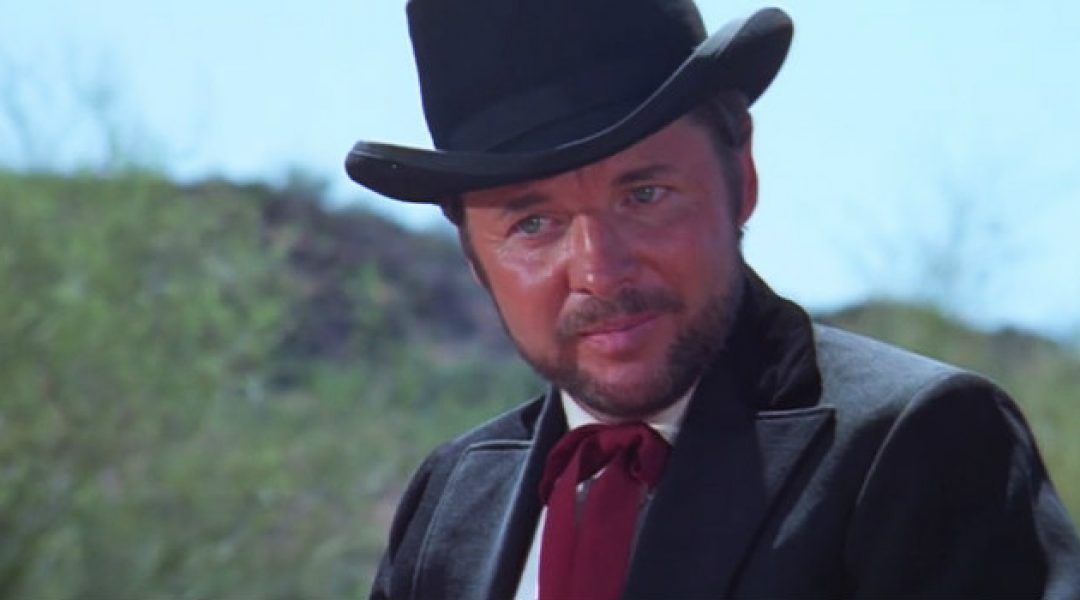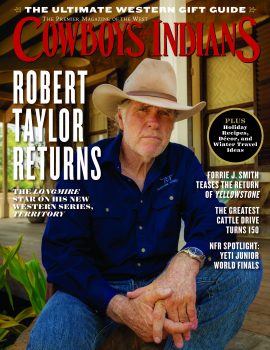We look back at a fatalistic 1969 western featuring the final film appearance of Audie Murphy.
Editor's Note: C&I is celebrating the golden westerns of 1969, a year that changed the game for the beloved film genre. Check the Entertainment tab each day to see a different film recommendation by C&I senior writer Joe Leydon. And be on the lookout for the upcoming November/December 2019 print edition, which prominently features one of the 25 greatest films of 1969 on its cover.
Easily one of the most harshly fatalistic of all the titles in our roundup of 1969 westerns, A Time for Dying was the first in what was originally intended as a series of movies jointly produced by actor (and decorated WWII hero) Audie Murphy and director Budd Boetticher. According to the American Film Institute, it received limited theatrical release throughout Texas shortly after filming ended in 1969. In 1971, however, Murphy died in a plane crash, and subsequent legal disputes involving his heirs over rights to the western delayed its premiere in New York, Chicago and other major markets beyond the Lone Star State until 1982.
Richard Lapp stars as Cass Bunning, a callow farm boy who is improbably proficient with his six-guns, but dangerously amateurish when it comes to exploiting his talent for anything other than shooting at snakes. When push comes to shove, he does manage to rescue the equally naïve Nellie (Anne Randall) from being forced into employment at a frontier brothel. (He later marries her — but only because he’s ordered to do the right thing by no less an authority figure than Judge Roy Bean.) When he runs afoul of outlaw Billy Pimple (Bob Random), however, Cass is seriously hampered by his lack of experience — and, more important, his chronically sweaty palms.
And if that doesn’t bum you out, trust me: By the time you view the final image of men flocking into the aforementioned bordello after another prospective employee arrives — part of a climactic sequence aptly described by New York Times critic Vincent Canby as “so purposely bleak that it’s almost sentimental in reverse” — you may be ready to set down your glass and pick up the bottle.
Lapp and Randall are passable as the protagonists, but they’re repeatedly overshadowed by such scene-stealers as Victor Jory, whose boisterous performance as the legendary Judge Roy Bean could be labeled Swift’s Premium and sold by the pound, and Murphy himself, who makes every moment count during his cameo appearance as an ingratiating Jesse James. The famed outlaw rides into the movie with his gang around the 45-minute mark, and sticks around just long enough to offer vocational guidance to Cass, and express respect for Nellie’s feistiness. “By jiggers, young lady!” he exclaims. “If you could shoot like your husband, I’d invite you to join up with us right now! You make Belle Starr look like a nun!”












